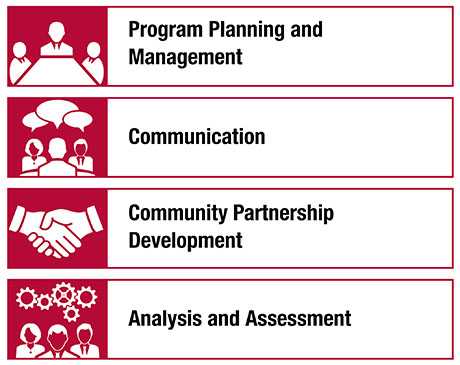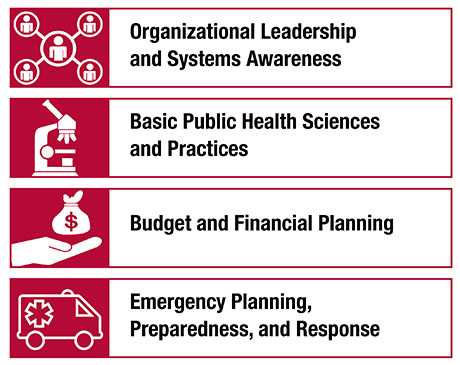IMPACT Learning Model
How IMPACT Works
IMPACT uses a service-based learning model, where fellows gain knowledge and skills through formal in-class training (25%) as well as on-the-job training and supervision and mentorship (75%). The program has two tracks:
- Track 1: IMPACT Fellowship Program, a two-year master’s program for early career professionals
- Track 2: IMPACT Distinguished Fellows Program, a six-month program for senior level managers
Fellows will convene for classroom study and workshops each quarter for Track 1, and once a month for Track 2. These sessions are led by local and international public health experts. During these courses, IMPACT fellows learn the core principles of public health practice and progress towards mastery of the following 8 competency domains:


Developing expertise in these competencies will ensure fellows are prepared to implement programs, advance public health agendas, and improve health outcomes using the newest tools of public health.
Field Training and Projects
Fellows acquire most of their training at their field site. Here, fellows develop effective program management skills with help from their supervisors and mentors. Supervisors oversee fellows’ assignments working on local public health projects, and mentors provide the fellows with additional guidance and support.
We assess the fellows based on four Core Activities for Learning (CAL). To graduate from the program, fellows must complete this series of projects to demonstrate their comprehension for competency objectives, and skills gained. CALs include:
- Designing a major public health program or project
- Designing, conducting, and reporting an evaluation of an existing public health program or project
- Conducting a community needs assessment
- Providing management or operations support for a field investigation or an emergency response
Fellows also need to complete five developmental activities. They may complete these within the CALs or separately. They include:
- Providing verbal and written briefs
- Organizing and facilitating effective small and large meetings
- Developing and presenting a staffing plan and budget
- Facilitating a consensus-building activity
- Communicating scientifically-based prevention and risk concepts
- Page last reviewed: August 29, 2017
- Page last updated: August 29, 2017
- Content source:


 ShareCompartir
ShareCompartir